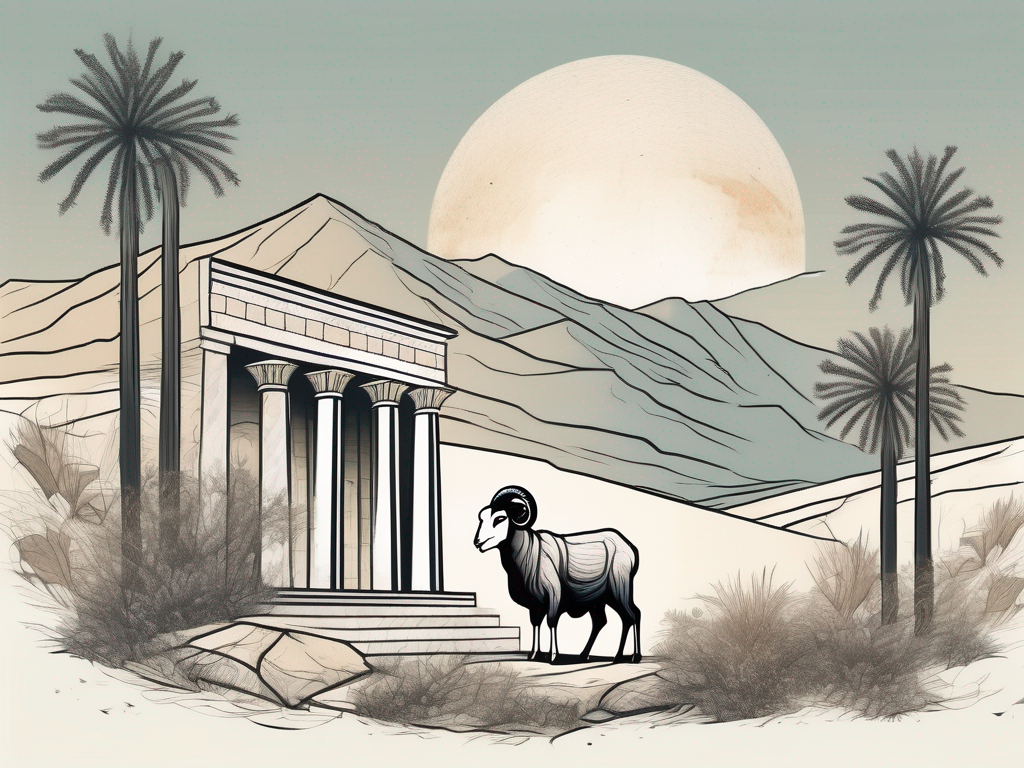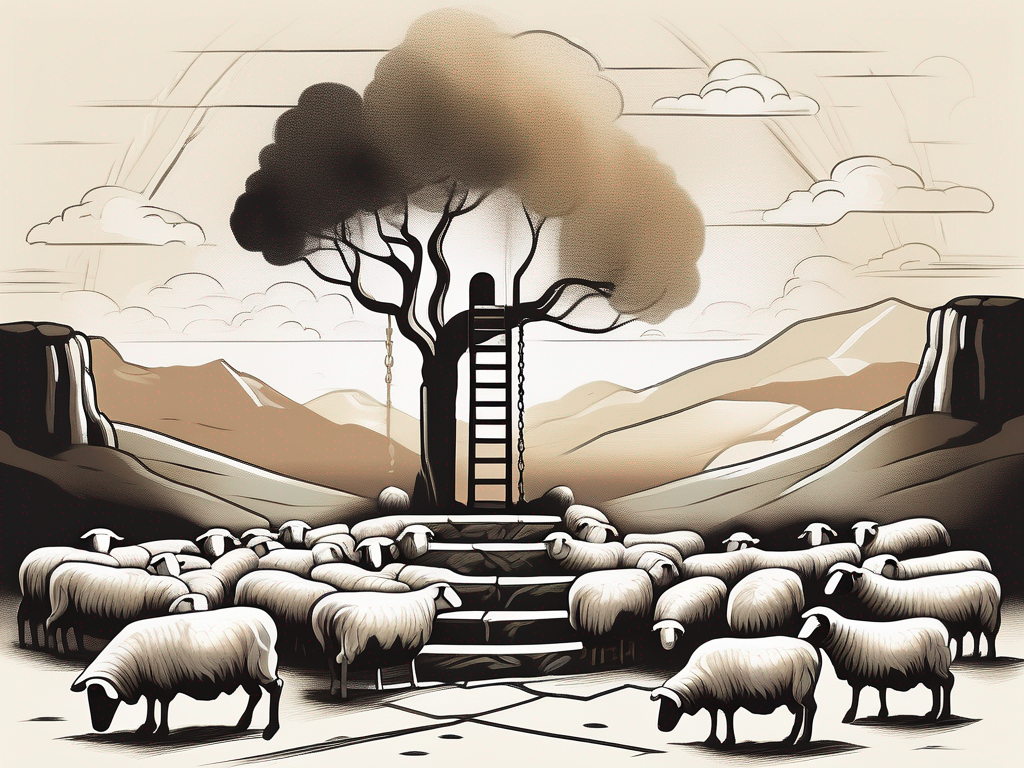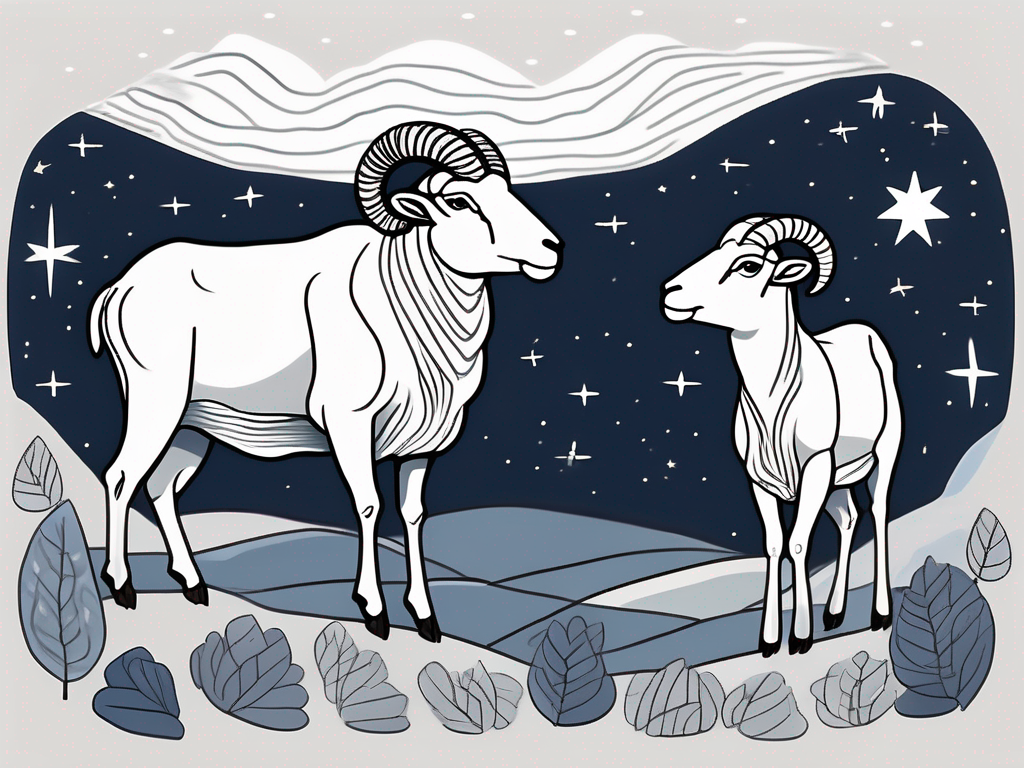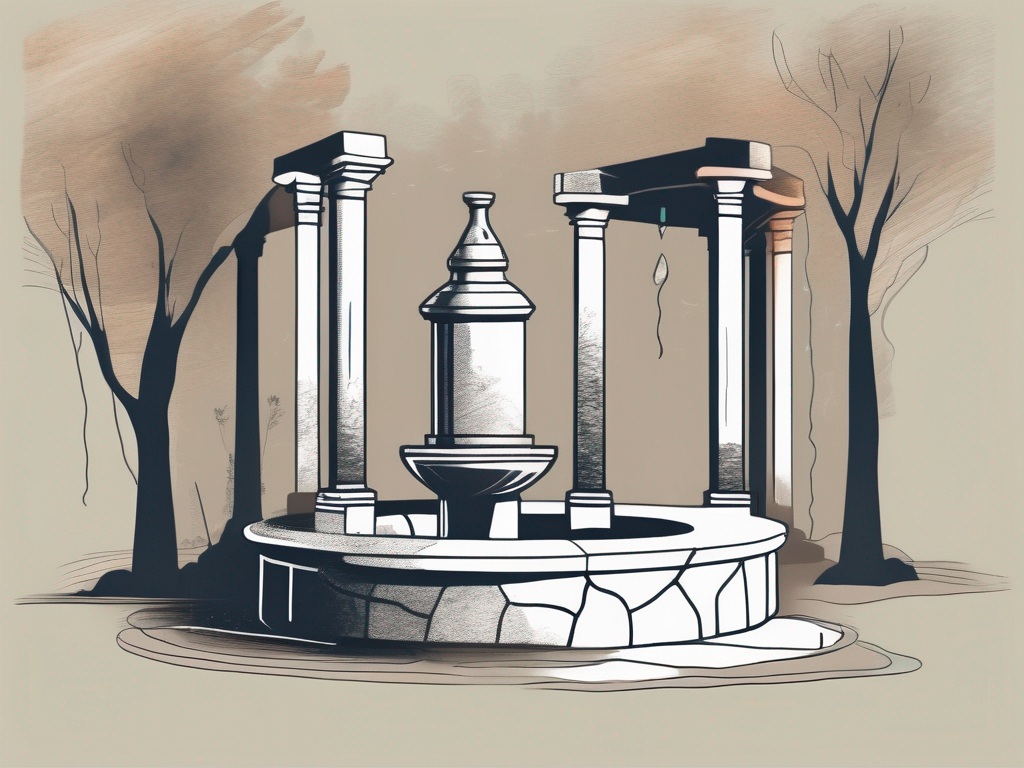Jacob holds a significant place in Judaism, with his story and teachings playing a crucial role in shaping the faith. Understanding his role can provide valuable insights into the Abrahamic lineage and Jewish theology.
Understanding Jacob’s Role in Judaism
Jacob’s place in the Abrahamic lineage is essential to grasp his overall significance. As the grandson of Abraham and the son of Isaac, Jacob played a pivotal role in the continuation of God’s covenant with the Jewish people.
In Jewish theology, Jacob is seen as one of the Patriarchs, alongside Abraham and Isaac. He is revered for his unwavering faith and his striving to fulfill God’s promises and guidance.
Let’s delve deeper into Jacob’s life and understand the key moments that shaped his role in Judaism.
One of the most well-known stories involving Jacob is his encounter with an angel. According to the Book of Genesis, Jacob wrestled with an angel throughout the night. This intense struggle symbolized Jacob’s determination and resilience in his pursuit of spiritual growth. Despite sustaining an injury, Jacob refused to let go until the angel blessed him. This event earned Jacob the name “Israel,” which means “one who struggles with God.” It signifies his transformative journey and his commitment to his faith.
Another significant aspect of Jacob’s life is his relationship with his twin brother, Esau. The story of Jacob and Esau highlights the complexities of sibling rivalry and the consequences of deceit. Jacob, with the help of his mother, Rebekah, deceived their blind father, Isaac, to receive the blessing meant for Esau. This act of trickery led to a strained relationship between the brothers, which eventually reconciled many years later. This tale serves as a reminder of the importance of honesty and the consequences of our actions.
Jacob’s journey also includes his marriages to Leah and Rachel, two sisters who were daughters of Laban. Jacob’s love for Rachel was so strong that he agreed to work for Laban for seven years in exchange for her hand in marriage. However, Laban deceived Jacob and gave him Leah instead. Jacob then worked an additional seven years to marry Rachel. This narrative teaches us about the power of love, commitment, and the challenges that come with it.
Furthermore, Jacob’s twelve sons, who became the heads of the Twelve Tribes of Israel, played a crucial role in the formation of the Jewish nation. Each son had distinct characteristics and strengths, contributing to the diversity and unity of the Jewish people. The story of Joseph, one of Jacob’s sons, exemplifies the themes of forgiveness, redemption, and the belief in divine providence.
Overall, Jacob’s role in Judaism extends beyond being a patriarch. His life is filled with significant events and moral lessons that continue to resonate with believers today. From his struggle with the angel to his complex relationships and the formation of the Twelve Tribes, Jacob’s journey serves as a source of inspiration and guidance for individuals seeking to deepen their understanding of faith and their connection to God.
The Life of Jacob: A Detailed Overview
Exploring the life of Jacob unveils the rich tapestry of experiences that shaped his journey. From his birth and early life to his encounters with God and his relationships with his family, each aspect offers valuable insights.
Jacob’s Birth and Early Life
Jacob’s story begins with his birth, where he and his twin brother Esau struggled even before their arrival into the world. This struggle foreshadowed the conflict and complexities that would define Jacob’s life.
As he grew up, Jacob’s desire for spiritual fulfillment sparked a profound encounter with God. This encounter proved transformative, leading him to receive a new name, Israel, which means “wrestles with God.”
But Jacob’s early life was not without its challenges. He faced the constant rivalry and tension with his brother Esau, which eventually led to him deceiving their father, Isaac, to receive the birthright and blessing meant for Esau. This act of deception set the stage for the intricate web of relationships and consequences that would follow.
Jacob’s Encounter with God
Jacob’s encounter with God at Bethel, where he dreamed of a ladder reaching into the heavens, further solidified his faith and sense of purpose. This divine encounter deeply influenced his later actions and decisions.
After this encounter, Jacob embarked on a journey to his uncle Laban’s house, where he would meet the love of his life, Rachel. However, Laban’s deceitful nature mirrored Jacob’s own past actions, as he tricked Jacob into marrying Leah, Rachel’s older sister, before allowing him to marry Rachel. This complex love triangle added another layer of complexity to Jacob’s life, testing his faith and resilience.
Jacob’s Family and Descendants
As the father of twelve sons, who would later become the founders of the Twelve Tribes of Israel, Jacob’s role as a patriarch reverberates through Jewish history. His family’s dynamics, including the well-known story of Joseph and his brothers, provide valuable moral lessons and insights into human relationships.
The story of Joseph, Jacob’s favorite son, and his brothers showcases the themes of jealousy, forgiveness, and redemption. Joseph’s journey from being sold into slavery by his brothers to becoming a powerful ruler in Egypt demonstrates the intricate interplay between fate, divine intervention, and human choices.
Throughout his life, Jacob faced numerous trials and tribulations, but he also experienced moments of profound joy and fulfillment. From wrestling with God to wrestling with his own inner demons, Jacob’s story serves as a reminder that life is a complex tapestry of experiences, and it is through these experiences that we find meaning and purpose.
Jacob’s Legacy in Judaism
Jacob’s influence extends beyond his immediate family and impacts various areas of Jewish life, both in traditional practices and modern thought.
Jacob, also known as Israel, holds a significant place in Jewish history and culture. His story, as depicted in the Hebrew Bible, serves as a source of inspiration and guidance for Jews around the world.
One of the key ways Jacob’s legacy is seen in Judaism is through the numerous customs and traditions that stem from his experiences and teachings. His unwavering devotion to monotheism, inherited from his grandfather Abraham and father Isaac, serves as a foundational principle for Jewish religious practice. The belief in one God, passed down through the generations, is a central tenet of Judaism.
Furthermore, Jacob’s journey to the Promised Land, as described in the book of Genesis, holds great significance in Jewish tradition. His struggles and encounters along the way, such as wrestling with an angel, symbolize the challenges and tests that the Jewish people have faced throughout history. Jacob’s determination to fulfill God’s promise and establish a homeland for his descendants serves as a powerful example of faith and perseverance.
In addition to his impact on Jewish traditions, Jacob’s complex character and experiences continue to shape modern Jewish thought. His struggles, successes, and even his flaws offer deep insights into human nature, faith, and the pursuit of righteousness.
However, interpretations of Jacob’s actions and character have not been without controversy and passionate debate within Jewish scholarship. Some view him as a flawed yet ultimately righteous figure, while others question his choices and moral character. These differing perspectives contribute to a rich and ongoing dialogue within the Jewish community, allowing for a deeper understanding of Jacob’s legacy and its implications for contemporary Jewish life.
In conclusion, Jacob’s influence on Judaism is far-reaching and multifaceted. From his foundational role in Jewish religious practice to his impact on modern Jewish thought, his legacy continues to inspire and challenge Jews around the world. By studying Jacob’s story and reflecting on its lessons, individuals can find guidance and inspiration in their own spiritual journeys.
Jacob’s Representation in Jewish Scriptures
Jacob’s story is intricately woven throughout Jewish scriptures, with prominent references found in both the Torah and the Talmud.
Jacob, also known as Yaakov in Hebrew, holds a significant place in Jewish history and religious teachings. His life is chronicled in great detail, highlighting his adventures, challenges, and encounters with God. Through his experiences, Jacob’s story serves as a source of inspiration and guidance for generations to strive for spiritual enlightenment.
In the Torah, the first five books of the Hebrew Bible, Jacob’s journey unfolds, revealing the complexities of his character and the lessons he learns along the way. From his birth and sibling rivalry with his twin brother Esau to his encounters with angels and his wrestling match with a divine being, Jacob’s life is filled with remarkable events that shape his identity.
One of the most well-known stories in the Torah is Jacob’s dream of a ladder reaching up to heaven. In this dream, God reaffirms the covenant made with Jacob’s grandfather, Abraham, promising him and his descendants the land of Canaan. This dream serves as a pivotal moment in Jacob’s life, solidifying his faith and sense of purpose.
Throughout his journey, Jacob faces numerous challenges and tests of character. He experiences deception and trickery, both as a victim and as a perpetrator. His relationships with his wives, Leah and Rachel, and their handmaids, Bilhah and Zilpah, are marked by love, jealousy, and rivalry. These complex dynamics within Jacob’s family provide valuable insights into human relationships and the complexities of love and loyalty.
Jacob in the Talmud
The Talmud, a central text of Jewish law and teachings, expands upon Jacob’s story, delving deeper into his character and exploring the ethical and moral implications of his actions. Talmudic discussions surrounding Jacob’s life offer valuable insights into Jewish law, philosophy, and the importance of ethical conduct.
One of the key themes explored in the Talmud is Jacob’s transformation from a cunning and self-centered individual to a more compassionate and righteous person. His encounters with his brother Esau and his reconciliation with him demonstrate the power of forgiveness and the potential for personal growth.
The Talmud also delves into the relationships between Jacob and his twelve sons, who became the patriarchs of the twelve tribes of Israel. Each son possesses unique qualities and characteristics, and their interactions with Jacob provide valuable lessons on leadership, family dynamics, and the importance of unity.
Furthermore, the Talmudic discussions surrounding Jacob’s encounters with God shed light on the nature of divine communication and the role of prophecy in Jewish tradition. Jacob’s wrestling match with a divine being, often interpreted as an angel or a representation of God, symbolizes his struggle for spiritual enlightenment and the challenges he faces in his quest for a deeper connection with the divine.
In conclusion, Jacob’s representation in Jewish scriptures, both in the Torah and the Talmud, offers a rich tapestry of stories, teachings, and ethical insights. His life serves as a source of inspiration, providing valuable lessons on faith, personal growth, and the complexities of human relationships. Through the study of Jacob’s story, individuals can gain a deeper understanding of Jewish tradition and the timeless wisdom it imparts.
Controversies and Interpretations of Jacob’s Story
As with many biblical figures, Jacob’s actions and character have been subject to different interpretations, leading to debates and controversies within Jewish scholarship.
Different Interpretations of Jacob’s Actions
Some scholars emphasize Jacob’s cunning and manipulative nature, particularly regarding his dealings with his brother Esau and his father-in-law Laban. They view these actions within the context of survival and self-interest.
However, others highlight Jacob’s spiritual journey and his transformative encounters with God, arguing that these experiences helped shape a more profound and nuanced understanding of his actions.
Debates Surrounding Jacob’s Character and Legacy
The complexities of Jacob’s character and his multifaceted relationships raise questions and debates within Jewish scholarship. Exploring these debates not only deepens our understanding of Jacob but also adds richness to Jewish intellectual discourse.
Overall, understanding Jacob’s significance in Judaism goes beyond a mere exploration of historical events. It offers valuable lessons, moral insights, and a profound connection to the Jewish faith and community.












